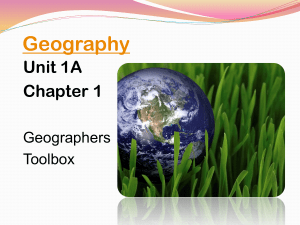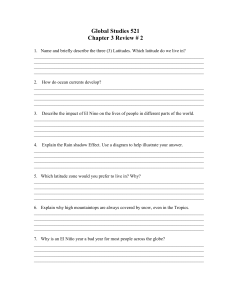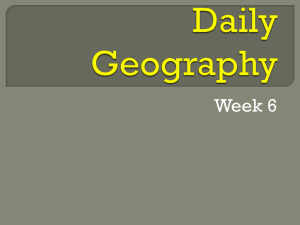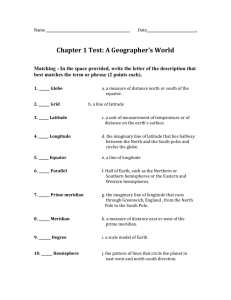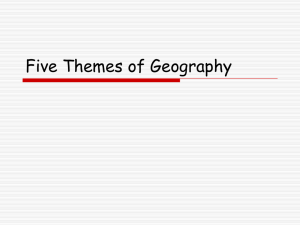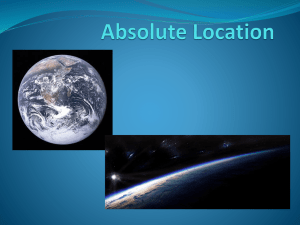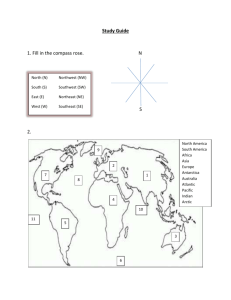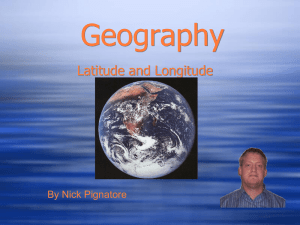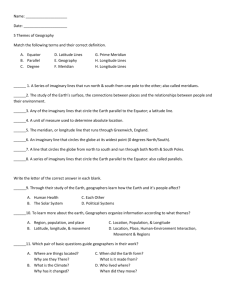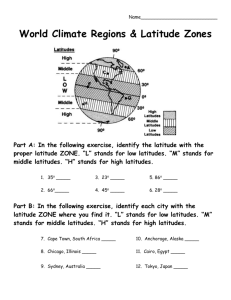Ch. 1 Homework - Fredericksburg City Public Schools
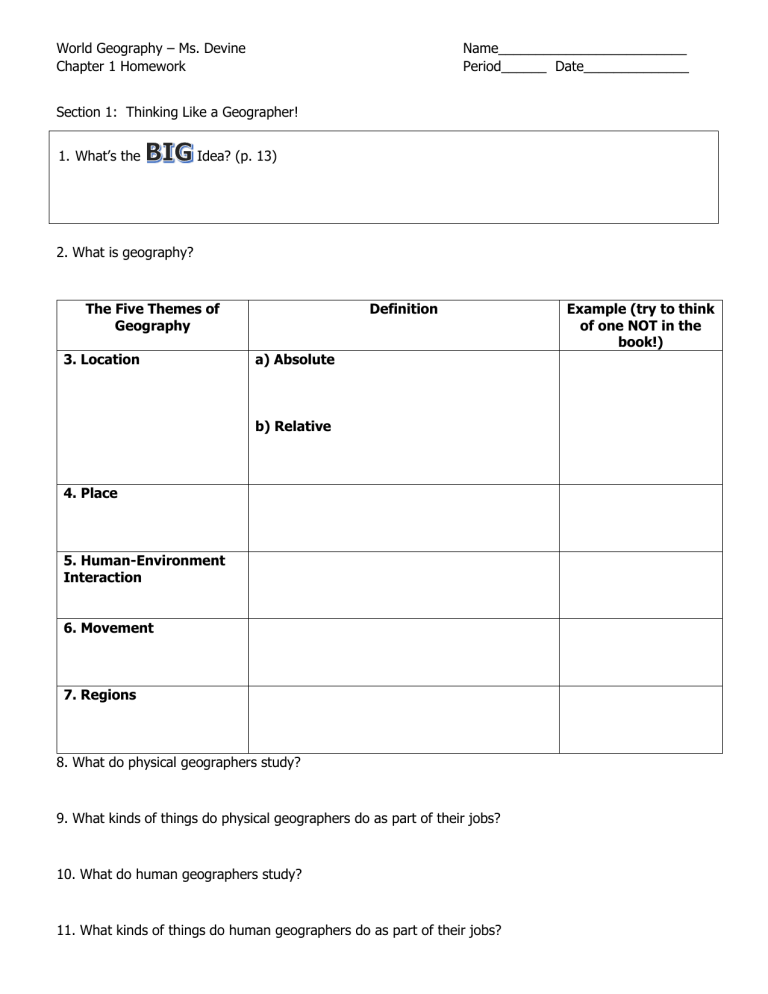
World Geography – Ms. Devine
Chapter 1 Homework
Section 1: Thinking Like a Geographer!
1. What’s the Idea? (p. 13)
2. What is geography?
The Five Themes of
Geography
Definition
Name_________________________
Period______ Date______________
3. Location
4. Place
5. Human-Environment
Interaction
6. Movement
7. Regions
8. What do physical geographers study? a) Absolute b) Relative
9. What kinds of things do physical geographers do as part of their jobs?
10. What do human geographers study?
11. What kinds of things do human geographers do as part of their jobs?
Example (try to think of one NOT in the book!)
The Four Long Periods of History
12. Prehistory
13. Ancient History
14. Middle Ages or Medieval Period
15. Modern History
When Did They Occur?
16. Satellites circling the earth are constantly updating and providing images and photographs. What other 2 functions do satellites perform?
17. What does GPS stand for, and what does it do?
18. What does GIS stand for, and what types of information can it show?
19. What is another name for a mapmaker (a person who makes maps)?
20. Globes
21. Maps
Advantages Disadvantages
Identify the following map projections:
22.
23.
24.
Lines of Latitude (p.24)
25.
(This one is not in your book, but you need to know it. We’ll go over it in class, but take a good guess!)
Lines of Longitude (p.24)
26. What is another name for lines of latitude?
27. What line is located at 0° latitude?
28. Which two letters must follow the degree sign
(°) to indicate latitude?
29. What is another name for lines of longitude?
30. What line is located at 0° longitude?
31. Which two letters must follow the degree sign
(°) to indicate longitude?
32. What line divides the Earth into the northern and southern hemispheres?
33. What line divides the Earth into the eastern and western hemispheres?
Identify the following parts of a map according to the definitions provided: (p.26)
37.
38.
39.
34.
35.
36.
Show the extent of an area’s territory
Symbolized by a star
Measures distance on a map
Explains the symbols and colors; a legend
Symbolized by a circle
Tells you what information the map is showing
40. Tells you cardinal directions (N, S, E, W)
41. What is scale (often referred to as map scale)?
42. Would you use a small-scale map or a large-scale map to plan a road trip from Fredericksburg, VA to
New York City?
General Purpose Maps
Show a wide range of information about an area. Describe the purpose of the following general purpose maps:
43. Physical Maps
44. Political Maps
Thematic Maps (or
Special Purpose Maps)
45. Contour Maps
46.
47.
Show specific topics in detail. Explain a contour map below and then give two more examples of thematic maps:
Graphs
48. Bar Graph
49. Circle Graph
50. Line Graph
Graphs present and summarize information visually.
Illustrate the following types of graphs in the space below:
Section 2: The Earth in Space -
The Earth is one of eight planets in the solar system.
51. How long does it take for the Earth to make a complete revolution or orbit around the sun?
52. What do we do with the “extra” ¼ day?
61.
Label on the diagram above, including dates, and briefly describe the following:
53. Summer Solstice-
54. Winter Solstice-
55. Spring Equinox-
56. Fall /Autumnal Equinox-
After reading the description of the “Effects of Latitude” (p. 38), label if the temperature is
WARM,
COLD
, or whether the seasons
VARY GREATLY
in the various latitude zones.
57. High Latitudes
58. Mid Latitudes
59. Low Latitudes
60. Mid Latitudes
61. High Latitudes
